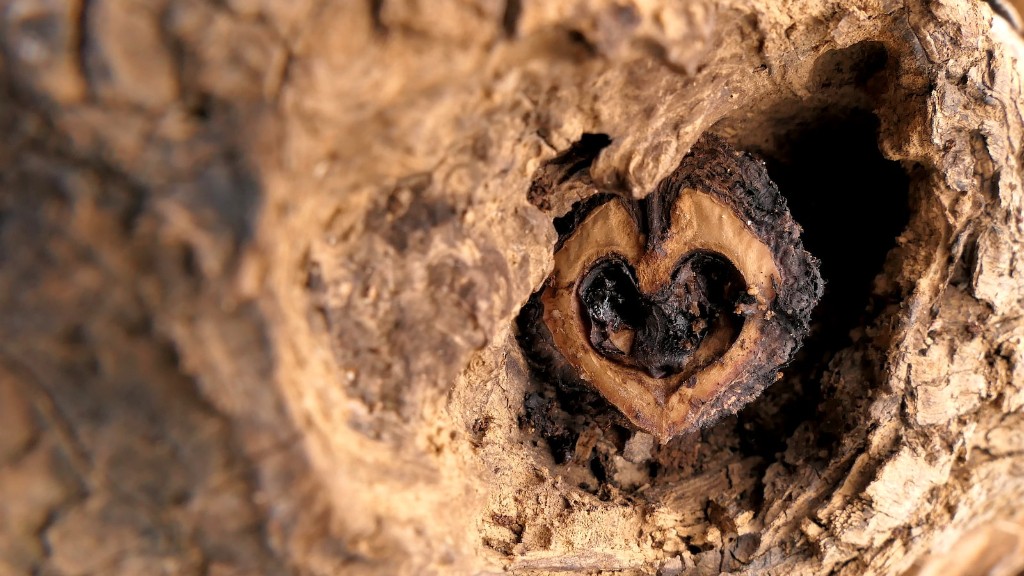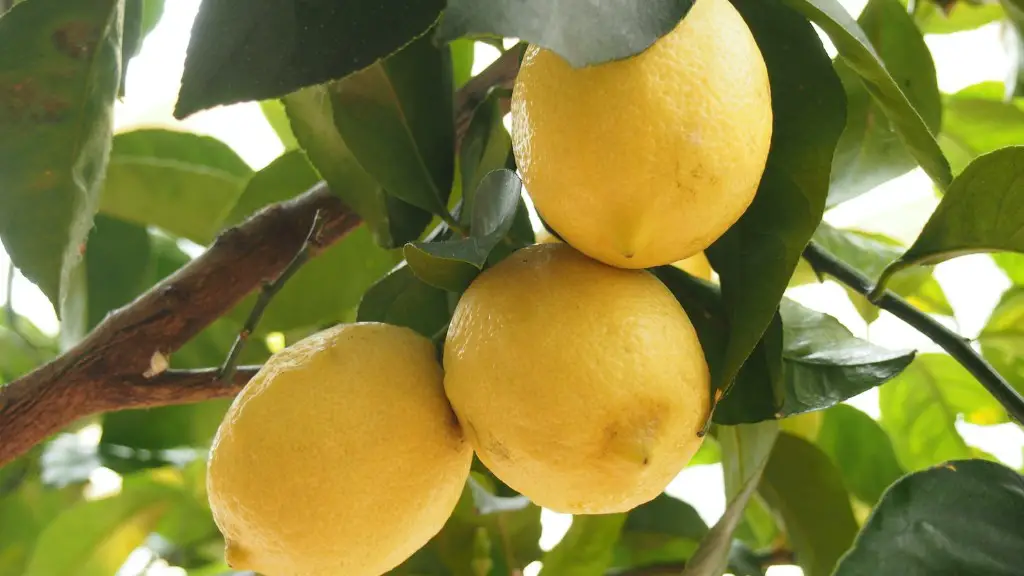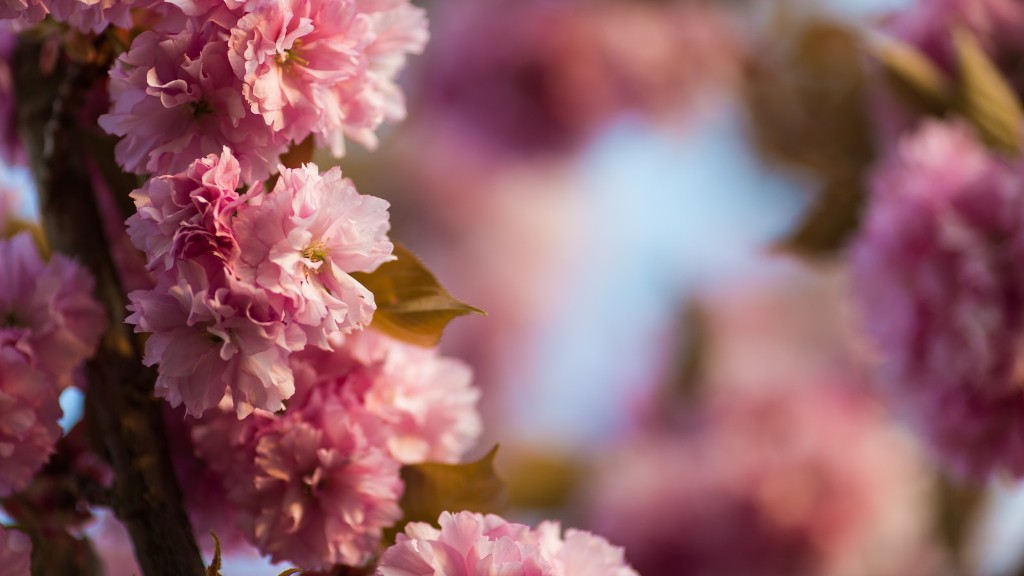Whether you want to cultivate a meyer lemon tree in your garden or want a refreshing vessel of juice–meyer lemon trees are a healthy addition to any home. This article will explain how to successfully grow and care for a meyer lemon tree, so that you can enjoy luscious fruits in the years to come.
First off, ensure you’re in a suitable location for planting. Meyers prefer warm weather and sunny conditions, so you must be sure your spot receives a substantial amount of sunlight throughout the day–preferably 6-10 hours daily. If you live in areas of the country with harsh winters, you may need to bring the tree indoors, as meyers have difficulty tolerating cold and frosty conditions.
You’ll need to find the right container for your tree. Your tree’s container should be roomy enough to allow the root system to grow and develop, and also be equipped with drainage holes in the bottom. It’s imperative that your soil is well-draining, to prevent root rot, thus be sure to use a loam-based compost to keep your soil light and airy.
Fertilizing your tree is an important step to ensuring its health. Every other month, use a citrus-based fertilizer to provide important nutrients, nitrogen and phosphorous. Organic methods of fertilizing are possible too, by using compost, manure, compost tea or worm castings.
One crucial part of meyer lemon tree growth and success is pruning. Pruning can help prevent issues, such as pest infestations and disease. Be sure to prune regularly to maintain the shape of the tree, remove any dead or diseased branches, and ensure the tree is healthy and strong.
Above all, it’s essential to water your meyer lemon tree correctly. During the summer, water the tree two or three times a week, but make sure to reduce the frequency in winter. The soil needs to be evenly moist, but avoid over-watering, as this could cause root rot.
To ensure your meyer lemon tree grows healthily and gives you many juicy lemons over the years, practice the steps above and use your best judgment in regards to location and overall care.
Fruit Growth for the Meyer Lemon Tree
Once you’ve nurtured and taken care of your meyer lemon tree for a period of time, you will eventually observe and harvested the fruit. These particular lemons grow in clusters and generally shrink in size. As soon as the fruits reach a yellow-orange color, they are ready for plucking from the tree.
Furthermore, you should be aware that meyer lemons contain a thin wax-like layer on their skin and typically present a vibrant yellow-orange hue. Keep a close eye on the size of the fruits, as these are liable to quicken in the growth process. It’s important to keep track of the size of them, as they can quickly grow and prematurely rot on the tree if left untended–which could cause a potential devastating loss of the whole batch.
Given that meyer lemons are a hybrid, they are relatively easy to tend in comparison to other lemon varieties. Do note that the fruits of meyers often have a much sweeter taste than their sour counterparts and will likely cause the tree to produce sweet fruits for many years after their initial harvest.
During the harvesting process, handle the fruits delicately to avoid bruising and do not test their ripeness by pressing. This can also cause fruit drop early, so it’s important to be gentle when learning how to pick these treasures from the tree.
You can use the meyer lemons for a variety of different uses–juice, candy, sauce, and more! Don’t forget to utilize the zesty aromatic rind to make refreshing curd, zest, and delicious snacks.
Potential Issues with the Meyer Lemon Tree
Although meyer lemon trees provide great rewards and benefits, they can also encounter a few issues during the growth process. Since meyers have difficulty withstanding frosty and cold weather, parasites or pests can take hold of the tree, if the winter season is too harsh.
Furthermore, note that meyers can present a few fungal and bacterial problems, such as anthracnose, leaf spot, and scale. If any of these issues arise, simply use an insecticidal soap or an oil spray to help eradicate the pests. However, take care to avoid over-treating the tree, as chemicals can harm the fruit.
On the flip side, meyer lemons are renowned for having a high resistance to disease and pests, so the chances of this happening shouldn’t be a grave concern. Usually, these types of issues arise due to an ill-suited environment, such as too much shade or cold weather.
In such cases, relocate your tree to an area that will benefit from cushy temperatures and sturdy sunlight. Also, water your tree consistently and test the soil for drainage and moistness. These little details can have a big impact on the health of your tree and ensure that it is safe from any further preying or disease.
Winter Preparations for the Meyer Lemon Tree
If you live in colder climates, it’s important to take steps to ensure your meyer lemon tree has enough care and protection during the winter. Primarily, you must inspect the location of your tree, be sure it’s in a warm and secure spot and is not close to any open windows that could cause further cooling.
Also, remember to cover your tree with a frost cloth or blanket if the cold weather takes place while the tree is still outdoors. This will help your meyer lemons avoid a cold shock, as the frost cloth can act as a barrier like a natural humidity chamber, and help sustain warmer temperatures in the immediate vicinity.
Additionally, water the tree correctly and consider using the rainwater collection method to store the harvested liquid in a vessel like a rain barrel. This way, you can ensure the tree doesn’t miss out on vital hydration during the winter season, should any colder spells arrive.
In the end, it’s always best to bring the tree indoors during the wintertime. This will secure your tree from any frost damage or cold snaps, increase its lifespan significantly, and help to replenish that much-needed Vitamin C in the winter months. Proper winter preparations can go a long way to assist a meyer lemon tree and help tender young growth.
Healthy Habits for the Meyer Lemon Tree
The key to growing a strong and healthy meyer lemon tree is in the details. Thus, it’s best to practice positive habits to keep the tree looking and feeling refreshed. As stated before, pruning is an important task, but you must also be aware of the wind patterns and any sudden gusts that may attack your tree.
Recently swept lemons should be firmly secured and stuck back – this will help reduce the chances of leaf shedding or other issues. Additionally, provide extra hydration to your tree, as this will help to supply essential calcium during the warm and dry season.
In addition, be sure to put the pot of your tree on wheels, if possible. This will enable you to easily transfer the tree in and out of the house to another sheltered location, especially if any cold snaps are expected.
In general, your meyer lemon tree will need a degree of guidance and a close watch. Utilize the above advice and practice healthy habits as mentioned, and you will be rewarded with a lemon tree that is both bountiful and resilient.
Cleaning Habits for the Meyer Lemon Tree
Meyer lemon trees tend to blossom before the fruit matures, meaning the entire tree can become laden with blossoms that fall off and scatter all over the area. This can cause quite a mess and lead to a cluttered environment that can prove detrimental to your tree.
Therefore, it’s best to have a clean-up routine in place to ensure that any falling leaves, petals or twigs are collected in a timely fashion. Put a light mulch around the base of the tree, not too close to the stem or trunk, to aid with composting. This composting layer will help the tree to conserve the moisture levels in the soil while creating its own mulch, helping the atmosphere to retain humidity.
Furthermore, investigate your tree regularly and if any signs of decay appear, prune away the affected areas. This will help to control the insect population and will help to maintain a fully kneaded citrus tree.
If you notice your tree is affected by parasites or pests, use a non-toxic insecticide to help control the problem. It’s always best to consult a citrus tree professional or an arborist, so you can be sure that no harmful chemicals are used.
In conclusion, endeavor to stay organized with your meyer lemon tree and practice regular cleaning habits to ensure the fruits you pluck are robust and healthy. This will help to avoid any eventual pest infestations, give your tree extra time to grow, and eager for you to pluck its harvest at its best.



